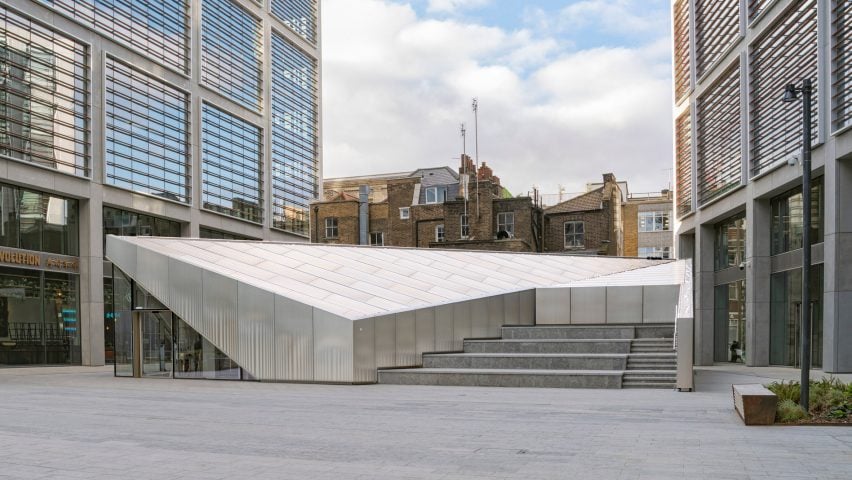
Museum of Shakespeare protects archaeological remains of Curtain Playhouse
Archaeological remains of Shakespeare's 16th-century Curtain Playhouse have been uncovered and integrated into the Museum of Shakespeare in Shoreditch, east London, by Perkins&Will.
Designed to "reveal and celebrate the historically significant remains" of the theatre, which were uncovered during the early stages of construction on the site, the museum was designed by architecture studio Perkins&Will for developer Cain International.
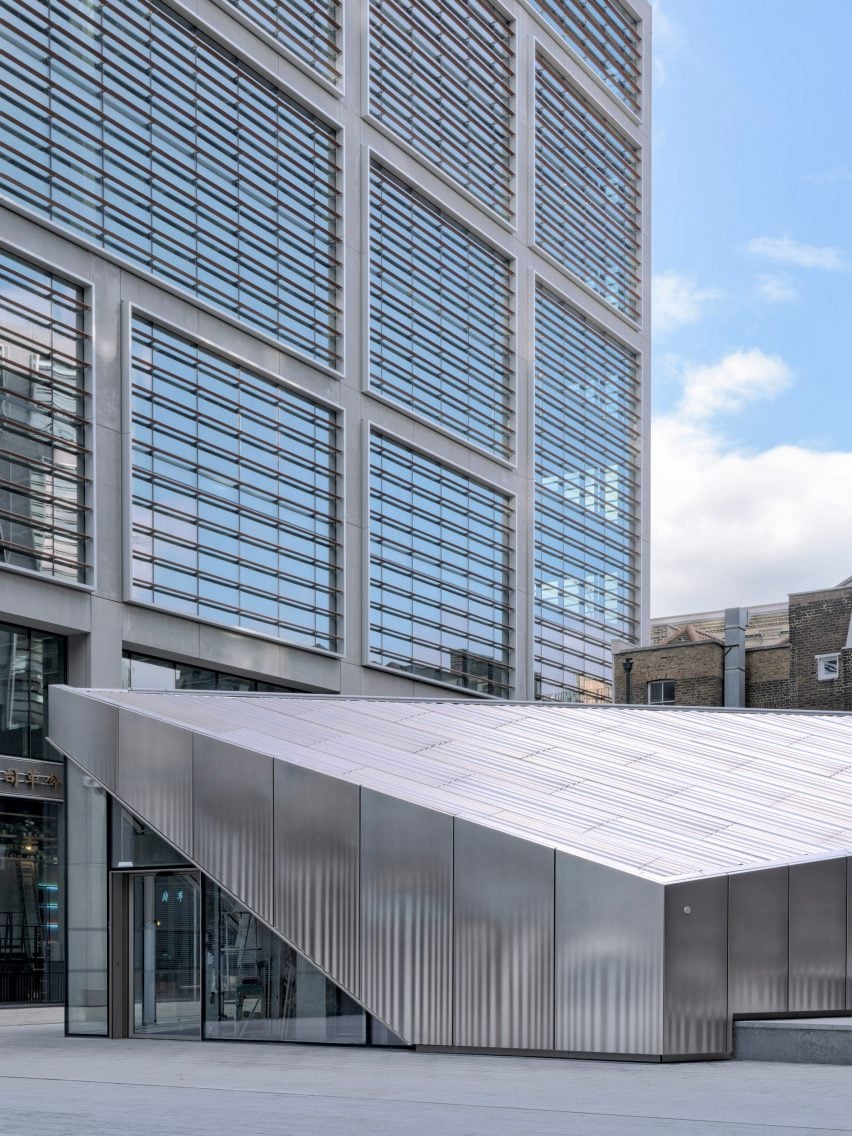
Built largely below ground, the museum is topped with a single-storey angular structure at ground level, which provides access to the museum interior.
The structure is clad entirely in stainless steel chosen as a reference to a stage curtain with ripples.
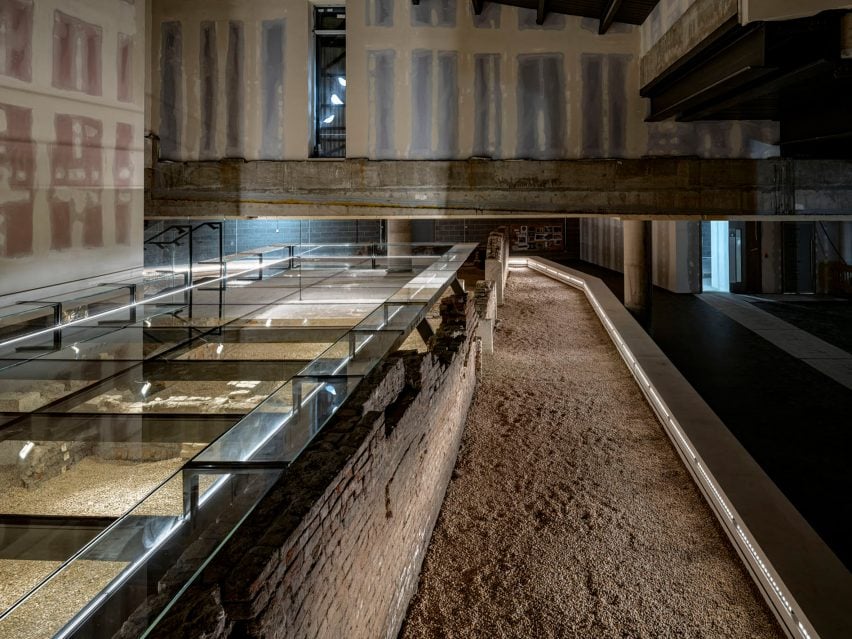
Below ground, the museum was built in response to the footprint of the archaeological remains.
Raised glass walkways and viewing platforms traverse the space at the height of the original stage to provide both circulation and views over the stripped-back interior, which is set to be fit out by creative studio Bompas & Parr.
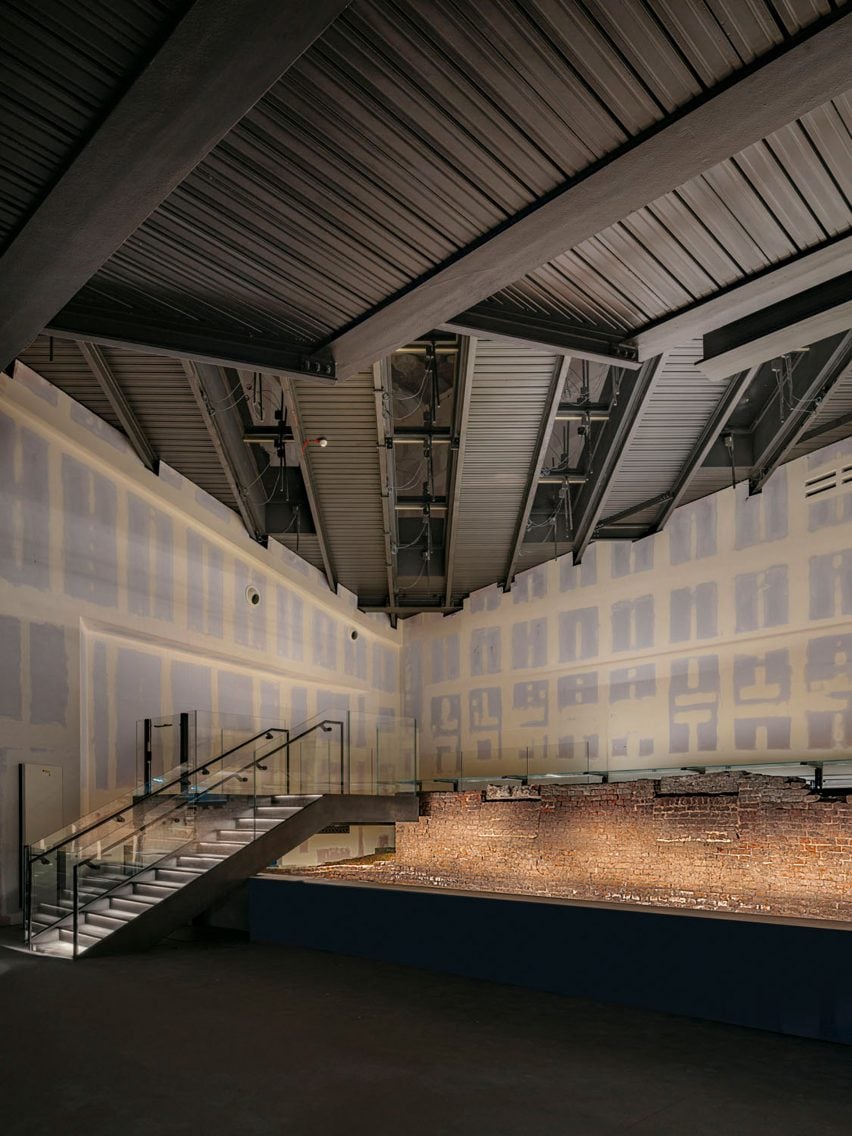
The museum forms part of a larger mixed-use development in east London named The Stage, which was also designed by Perkins&Will for Cain International. It contains over 20,000 square metres of workspace across two office buildings as well as 412 homes, and restaurants, bars and shops.
"The Stage project is a great example of the intelligent evolution of an urban quarter to create accessible, permeable and attractive space for people's use and enjoyment," said studio principal Sunand Prasad.
"Built layers from several centuries, now repurposed, have been woven together with substantial new flexible mixed-use space gathered round a public plaza, to create the largest public space ever in Shoreditch," he continued.
"The discovered remains of the 16th Century Curtain Theatre that was London's first Shakespearean playhouse, displayed in a new building that itself creates an amphitheatre, brings a magical extra dimension to the making of this new place for the busy neighbourhood."
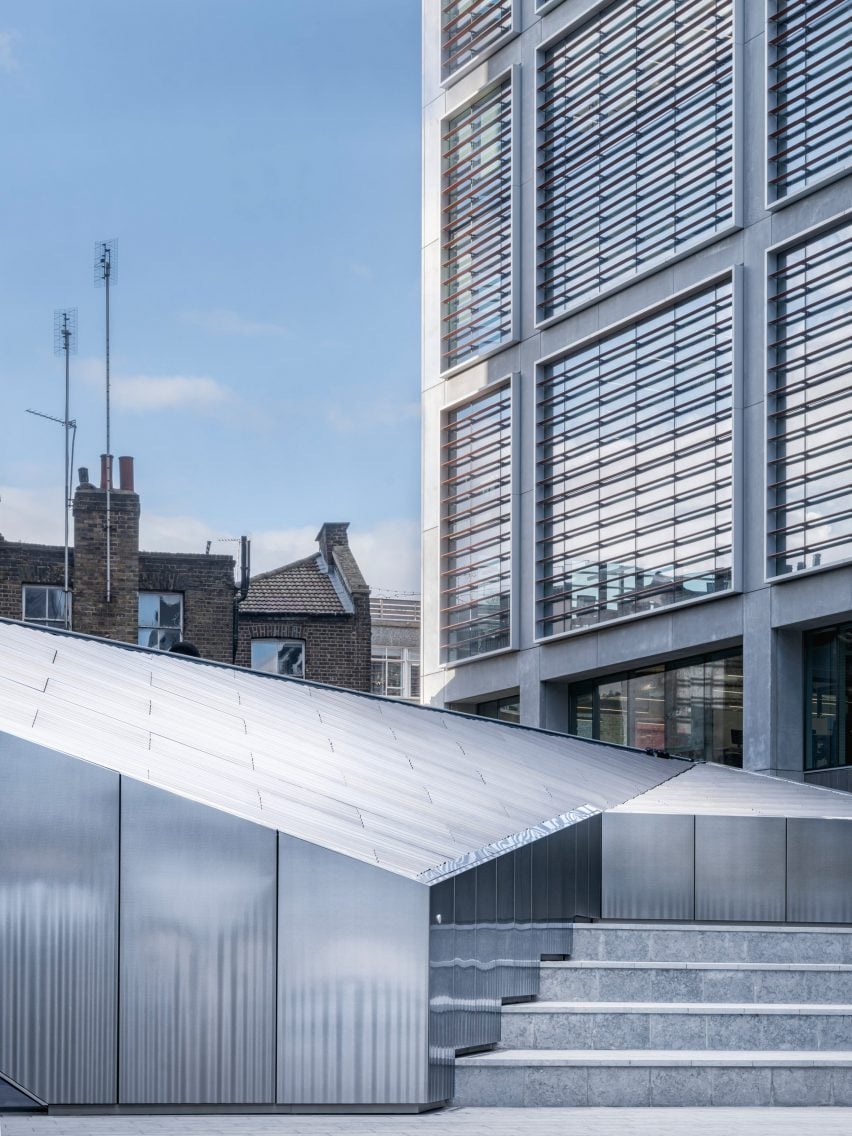
Steps built into the surface structure's side can be used as an outdoor amphitheatre to connect to the site's landscaped public plaza, which was designed to "recreate the buzz that once surrounded the site".
Further details that draw on the site's history include the addition of a bird-shaped window into the structure to provide views overlooking the museum and remains, as well as a Shakespeare quote etched into the museum's entrance wall.
Other recently completed museums featured on Dezeen include a Cold War museum in Denmark finished in black-metal panels and an art museum in Texas featuring raised concrete galleries.
The photography is by Timothy Soar.